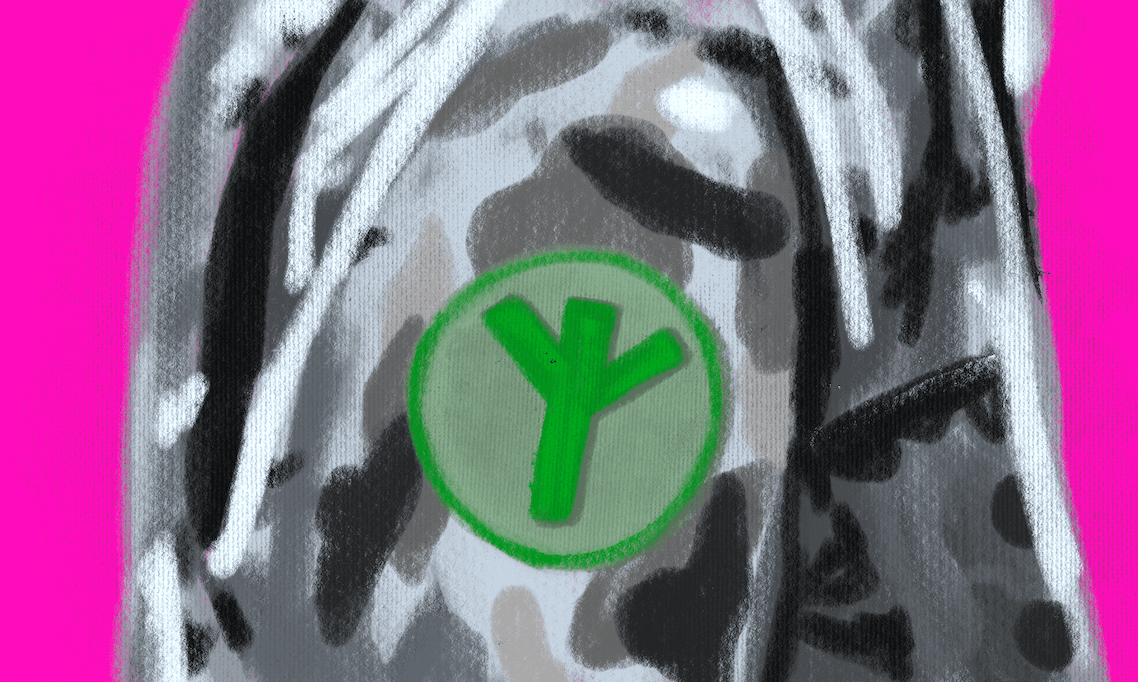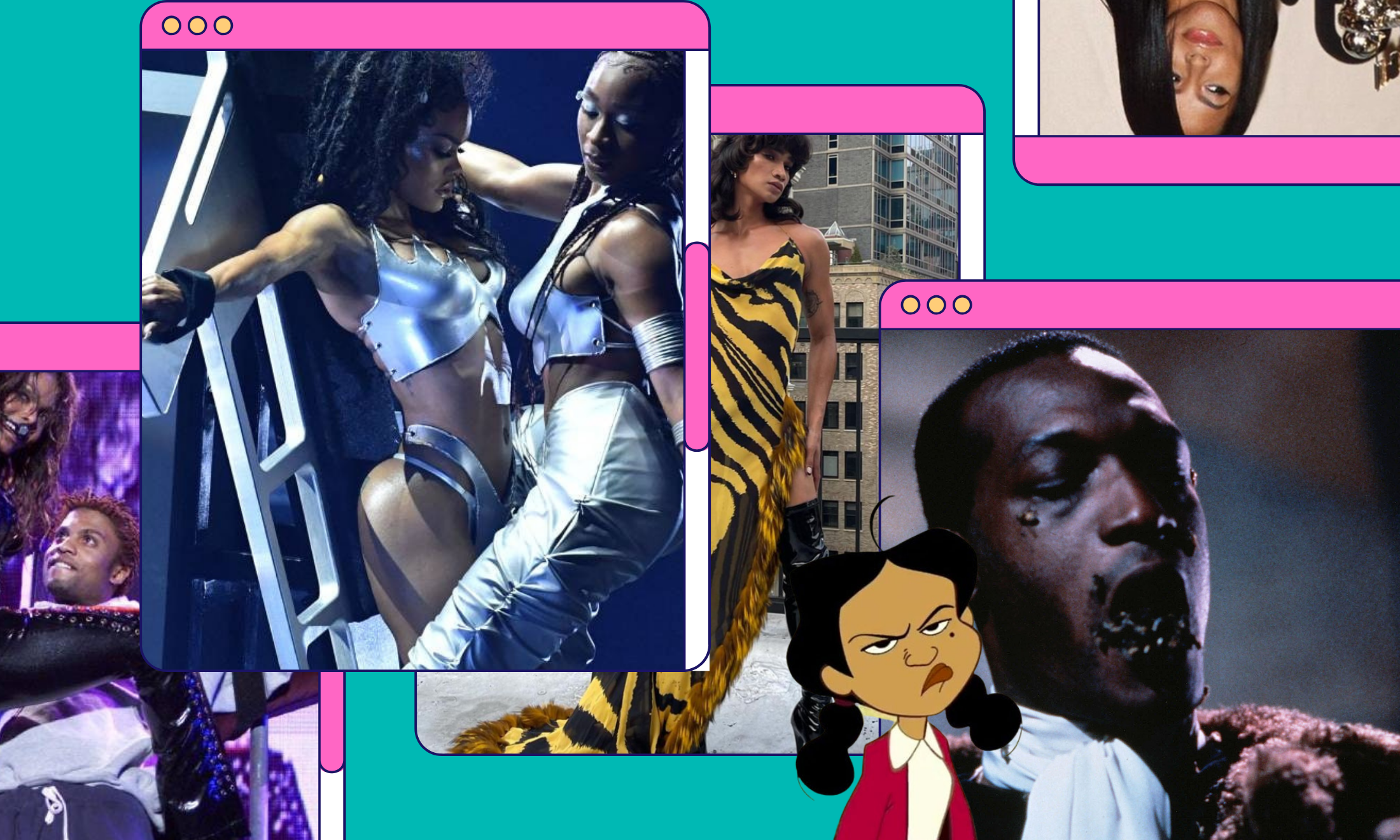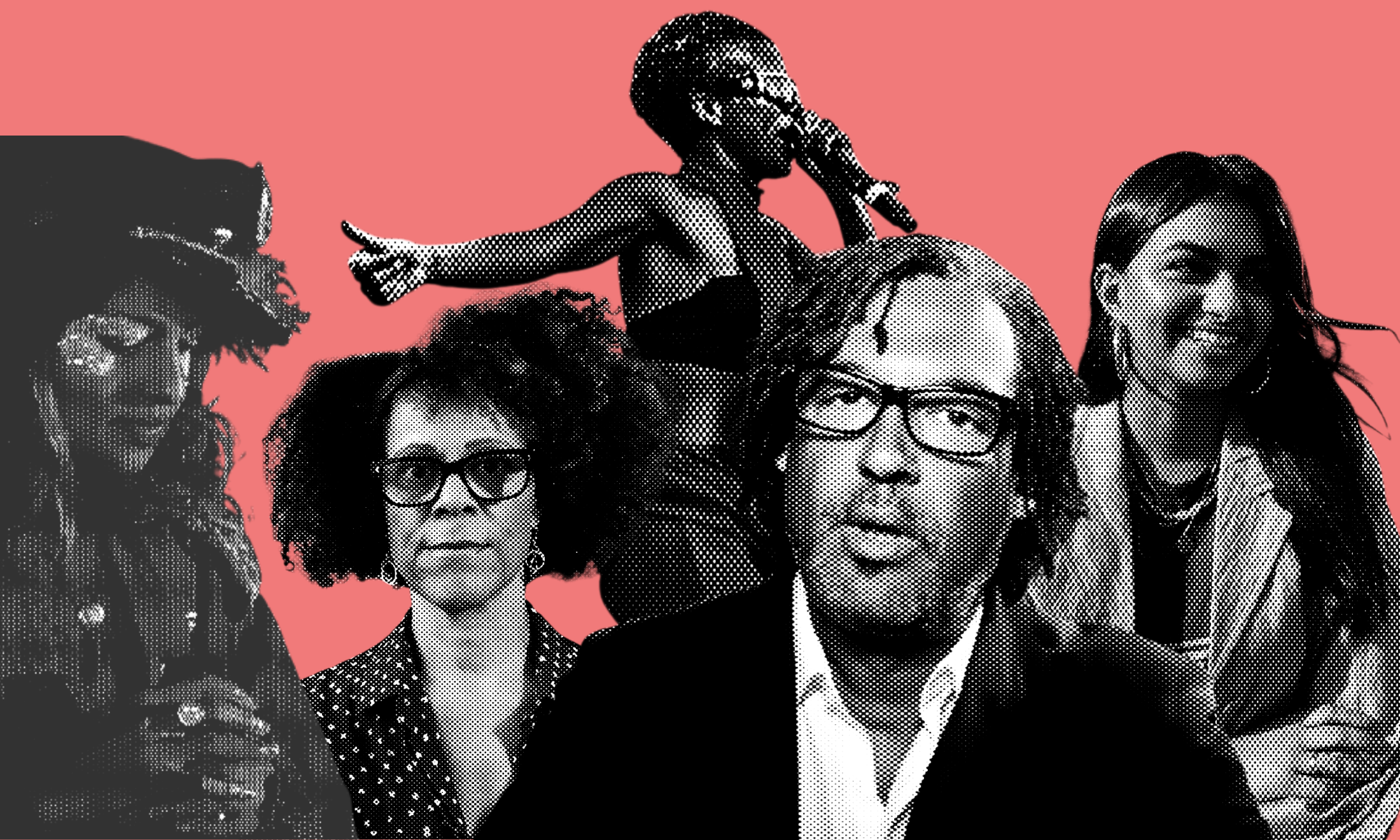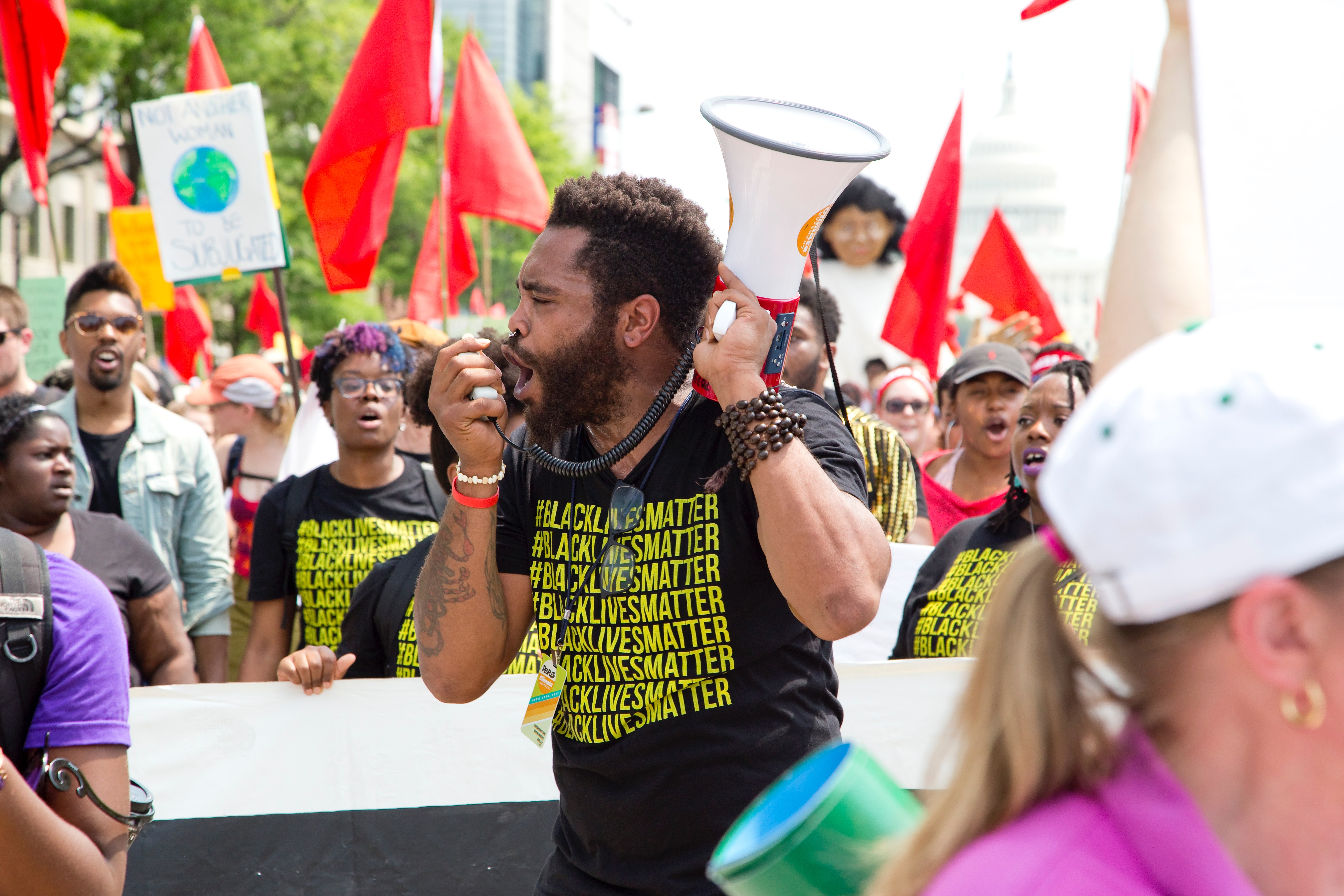
Bookmark this for the next time somebody asks you what political blackness is
Kemi Alemoru
10 Apr 2019
Image via Unsplash
In school, at about 14-years-old, I wasn’t paying attention to what my history teacher was saying but was suddenly aware that everybody in my class was staring at me. “What should I call you?” he asked. And, in a rare moment I’m at a loss for words. “Black? Coloured?” He eventually settled on “negro”.
If you’re black then you’ve probably had one of those moments where someone has seemed scared to even utter the word. Black isn’t just a label, it illustrates a very unique and sometimes isolating experience of a specific group. It’s steeped in history and shrouded in connotation. Which is why the concept of blackness as a catch-all phrase for all non-white people is a contentious issue.
In the UK, the concept of political blackness, where black is used to describe anyone who isn’t white, spans back decades. According to academics and activists who used it in that era, it was born out of shared experiences, for example, Asian, African and Caribbean families found it harder to let houses, and you might have been Indian and been called a “black bastard” as you were punched in the face. Riz Ahmed spoke of this duality in The Good Immigrant as he recounted: “When my brother and I were stopped near our home by a skinhead who decided to put a knife to my brother’s throat, we were black.”
Academics like Heidi Mirza, have mobilised with organisations like the Organisation of women of African and Asian descent (OWAAD) under the unified terms of “black feminist theory” since the late 70s, early 80s. She says the term had been “fundamental” in bringing together small fragmented movements led by ethnic minorities in the UK. “People came here as students C.L.R. James, Stuart Hall, I came a bit later in the 70s. If you look at the trail of people that came, studied here, they were from mixed heritages, they were from India, the Caribbean, Africa and Pan African scholars, so the concept of political blackness grew up from that very rich political activist space,” she explains over the phone. She notes that since then groups like Newham Monitoring Project (NMP), the British Black Panthers, and Southall Black Sisters have followed in those politically black footsteps.
“This is what the basis of colonialism was, centralising racial differences, putting people in boxes and categorising them and saying that that is fixed and forever”
Heidi Mirza
A reason she’s found the term useful is because she draws a distinction between blackness as something you are genetically, and blackness as a social construct. “In the 90s, people like Stuart Hall were saying we should avoid essentialism at all costs. So by essentialism it’s saying that there is a white essence, a black essence, an Asian essence, and we’ve always moved away from that biological genetic argument about race since the UN Declaration post-Holocaust in the 1940s,” she says. “This is what the basis of colonialism was, centralising racial differences, putting people in boxes and categorising them and saying that that is fixed and forever. So we have had scholars and activists move towards breaking down those same barriers that are used by the far right.”
Although, groups like OWAAD didn’t last very long due to tensions, Heidi has had an impressively long career in incredibly transformative racial activism and research. Yet, she’s been targeted online for being “anti-black” because of her stance on political blackness.“It isn’t about crushing down the voices. It’s about actually finding a common ground by listening to what the voices are saying to me. But, maybe it’s time I just stop using it if the new generation don’t find it useful because it’s the new generation that are in the driving seat.”
Even though it’s falling out of fashion, political blackness is still used today with startling regularity. During the last General Election a campaign, dubbed Operation Black Vote, was fronted by Riz, despite his Pakistani heritage. “The reason I am making this film is because blacks don’t vote, and by black people I mean ethnic minorities,” he explained to camera.
However, excluding our low turnout, party politics is where the differences between ethnic minorities in the UK can be most stark. Black people are far more likely to vote Labour, with 67% of us backing Ed Miliband in 2015. While Asians are also far more behind the Conservatives, with 38% of them getting Tories through the door of Number 10, compared to 21% of black Brits. When you break voting behaviour down even more by other cultural factors like religion and class you get Hindus and Sikhs agreeing with Tory values far more than minority ethnic Muslim voters. If we’re to believe that political blackness is useful in mobilising in a political context then we have to acknowledge that these figures show we actually want different things on a governmental level.
Of course, being a monolith is not a requirement for an ethnic group to be valid or to effectively mobilise for equality. There are lots of black people I don’t agree with. There’s also evidence that there is some Asian opposition to the term in academic circles, which has arisen because it creates a “false essentialism” that all non-white groups have things in common other than how white people treat them. But, differences in political leanings are an indication of the different types of pressures each race is under. Yes, BME people share the fact we are more likely to be unemployed, are subjected to hate crimes and microaggressions, and all of us deal with the stereotypes. However, black people come off worse on employment, harassment at the hands of police and deal with anti-blackness from other people of colour. Meanwhile, things like the spike in Islamaphobic hate crimes are things most black people are not well-versed on mobilising against. And, with Chinese attainment exceptional at GCSE age, there isn’t a strong argument that all ethnic minorities have similar experiences in academic contexts, for example.

There is also a danger of reducing “blackness”, or any ethnic minority experience, to the pain of being the subject of white abuse. As an actual black person, there is so much more to the culture and contribution of the African diaspora than oppression, or how white people view you. That’s a factor, but it’s not the only thing that makes me black. However, this pain-equals-black mindset is the reasoning behind news stories that have made waves over the last couple of years, as people who feel like outsiders attach themselves to a term that to them embodies resilience and otherness.
There was Rachel Dolezal, whose life of abuse at the hands of her white parents led her to affiliate herself more with her black adopted siblings, who she eventually called her sons. Then there was white Irishman Anthony Lennon who took a theatre grant intended for people of colour because he looked a bit like he could be black and claimed he had been treated like he was black.
This is something that has been raised time and time again with the NUS black students, which is a politically black campaign within the UK student body, helping them mobilise and campaign in a campus setting. Speaking to Fope Olaleye, who sits on the NUS Black Students Committee and National Executive Council, they say that while the term may have been useful in the past, it’s becoming “very confusing”. They explain: “It’s the name we have, but the name itself has not been useful for organising. I think if we’d had a different name we’d probably have been able to attract more membership. It’s exhausting and frustrating to have to acknowledge political blackness is bad but the work is good.”
Since Fope started in 2016 there have been several motions to change the name and they have personally stood up in favour of finding a different term; but the majority voted in favour of political blackness. “They felt that it was important. There’s a danger of falling into the idea that it is black people versus non-black people of colour which isn’t really true. Lots of black people saw the value in it.”
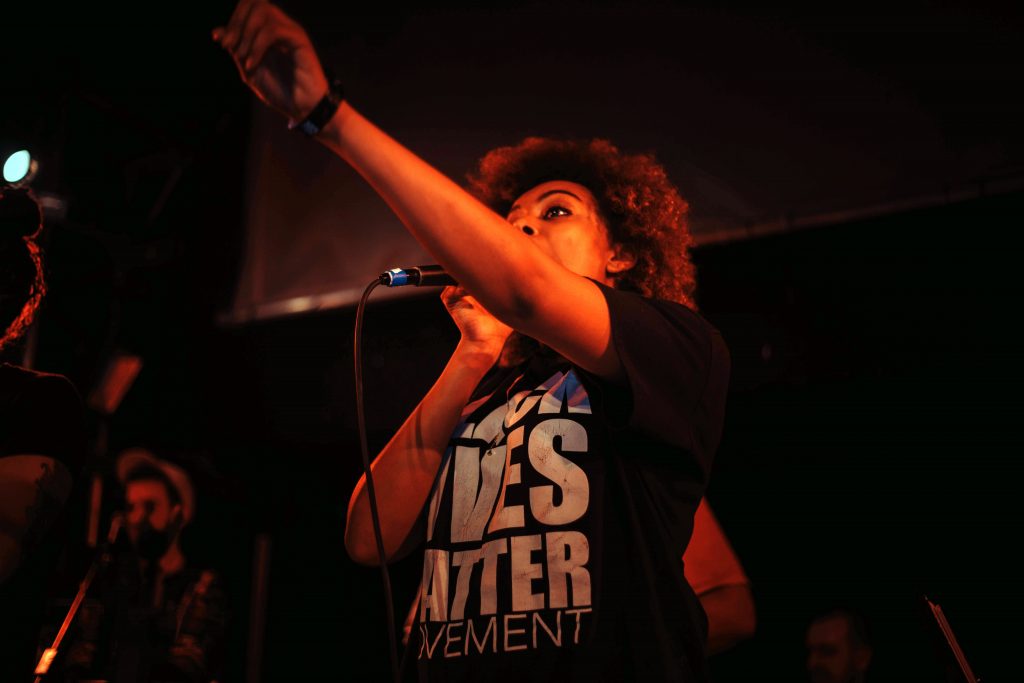
“There’s always this story that prior to multiculturalism everybody was politically black and we all got along and then there were divisions by the state who tried to break us into different boxes. That’s just not true. It’s a very bad explanation of history,” says Kehinde Andrews, a professor of black studies. He thinks the popularity of the term has been overblown in academic circles. “It’s just a bad narrative that we need to get rid of.”
Kehinde, who recently authored Back to Black: Retelling Black Radicalism for the Twenty-First Century, says that given the gravity of the word, he thinks political blackness is “inherently problematic”. “Blackness and African ancestry is political. That unity is political. We come together because of Africa and what that means”. Other than the British Black Panthers, which had prominent Asian activists too (like Farrukh Dhondy, who was consulted on Idris Elba’s controversial British civil rights drama Guerilla), unlike Heidi, he struggles to recall prevalent groups in history where ethnic minorities organised under “black” as an umbrella term. He believes it was far more common that there’d be groups divided along the lines of nationality, “like the West Indian Federation, Indian Workers Association, African Caribbean self-help organisation”.
Ultimately Kehinde believes that defining yourself and organising around the absence of whiteness is “really disempowering”. Though, what’s clear from looking at the myriad of perspectives in activist circles is that there’s a distinction to be made between the ethos behind political blackness and the contentious terminology itself.
“There’s always this story that prior to multiculturalism everybody was politically black then there were divisions by the state who tried to break us into different boxes. It’s just a bad narrative that we need to get rid of”
Kehinde Andrews
Even organisations like gal-dem address racial inequality for all ethnic minorities under umbrella terms like people of colour, which has its own history of being a post-colonial term for people of mixed heritage and moved to become a self-ascribed label for ethnic minorities as a whole. Whatever acronym you choose to describe non-white people homogenises vastly different cultures and skin tones. Black, Asian and minority ethnic (BME, BAME) is black plus everyone who isn’t white, and while it gives prevalence to blackness it also asserts that everyone who isn’t white is a part of a minority. when in fact the world’s largest ethnic group is Han Chinese. If you add all of these “minority” ethnic groups up, we’re the global majority, so the term itself feeds into a white fallacy that we are other and they are the default.
Similarly, people of colour, only serves to distinguish people as something other than white but still has its uses. Rather than it being to speak over and conflate any of the individual experiences, it’s a way to acknowledge that we have all been made to feel “other” in media spaces. Experiences of marginalised voices don’t have to have been the same, and the viewpoints needn’t be identical to form a valid alliance. Historically there has been a benefit of uniting oppressed groups based on solidarity alliances outside of racial inequality. Think Lesbians and Gays Support the Miners, and subsequently Lesbians and Gays Support the Migrants.
The contentious history of political blackness doesn’t lie in black unwillingness to share space, those who dislike the term do so because they feel it hijacks the complex richness of what it means to us to be black. Unity between the races doesn’t mean that we have to erase or bypass our differences, and even if it is useful to band together under a shorthand, it might be less contentious if that label wasn’t already in use by a specific group. For this same reason, the LGBTQI+ acronym keeps growing so that all sexual minorities don’t have to mobilise under the term “gay” and queer is often adopted as an alternative shorthand. Heidi agrees. “Yes, I’ve been trying to think of an all encompassing term for non-white women that can take other intersections into account,” she laughs. “But I’ve not had much luck.”
Bookmark this is an article series exploring big topics, helping readers get to grips with the ~discourse~ that informs debates in our communities

Britain’s policing was built on racism. Abolition is unavoidable

How Pakistan’s Khwaja Sira and transgender communities are fearing and fighting for their futures

Their anti-rape performance went viral globally. Now what?


